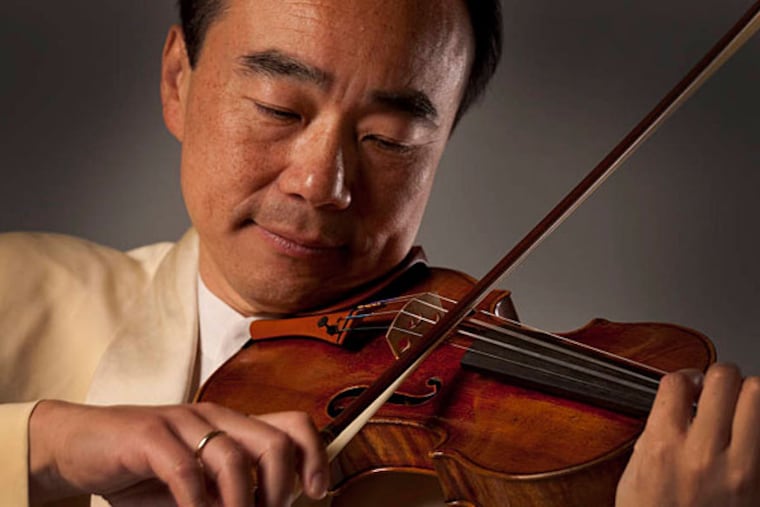Review: Orchestra 2001 presents an Asian buffet
The East-meets-West nexus in classical music still comes with so much creative leeway and remains so uncodified that a program titled "New Music From Asia" means that the only possible preconceived notion is the complete lack of one.

The East-meets-West nexus in classical music still comes with so much creative leeway and remains so uncodified that a program titled "New Music From Asia" means that the only possible preconceived notion is the complete lack of one.
In fact, the best-known composer in Orchestra 2001's Sunday program in Swarthmore delivered the most unexpected sounds. In Distance by Tan Dun sounded nothing like the composer's recent concert works (not to mention his Oscar-winning film music) - thanks to a particularly strong Chinese accent. The piccolo sounds like a folk flute, the harp like a koto, and the bass drum is played with bare hands, creating all manner of atmospheric effects. The three players were purposely dispersed on the Lang Hall stage, allowing listeners plenty of room - so to speak - for interpreting the meaning of their interaction. There were all manner of skirmishes and retreats, insect-like swarms from the harp, and ominous, distant rumbling from the bass drum - all making the piece a wonderful discovery.
The 1993 Nine Horses by Ye Xiaogang was never at a loss for arresting ideas, ranging from near-brutal percussion effects to more delicate ones with cymbals too small to make the typical crash, and a gong played without bombast, all presented in attractively shifting layers of sound, each of which at any given time seemed to veer toward various states of delirium.
Toru Takemitsu's Rain Tree Sketches I and II were the most predictable: dreamy, Asian impressionism that even in the most sympathetic performances seemed to have been written with a Zen-like acceptance of whatever idea drifted into the composer's head. But pianist Charles Abramovic located the unifying underlying sense of the music in ways I've rarely encountered, with the added advantage of each phrase unfolding with a sharp-focused purpose that gave better definition to the music's personality.
The wildest card was the brand-new violin concerto Spring Reflections by Taiwanese composer May-Tchi Chen. Like Augusta Read Thomas, Chen almost seems like a card-carrying modernist, with uncompromising density and allusions to the natural world that seem to be more embedded in the compositional process than in any superficial description. Though I have no problem following the likes of Elliott Carter, Chen threw out more information than I could take in, which made Orchestra 2001's performance under James Freeman valiant, to say the least.
Amid such musical thickets, soloist Cho-Liang Lin was a beacon of musical charisma, his unmistakably husky violin tone constantly drawing in your ear just as you were ready to declare defeat amid this high-velocity piece. For an encore, he gamely played some oriental kitsch, Fritz Kreisler's "Tambourin Chinois" - immensely enjoyable, and played with a humor and dash that show there's still plenty of heat in those 55-year-old fingers.